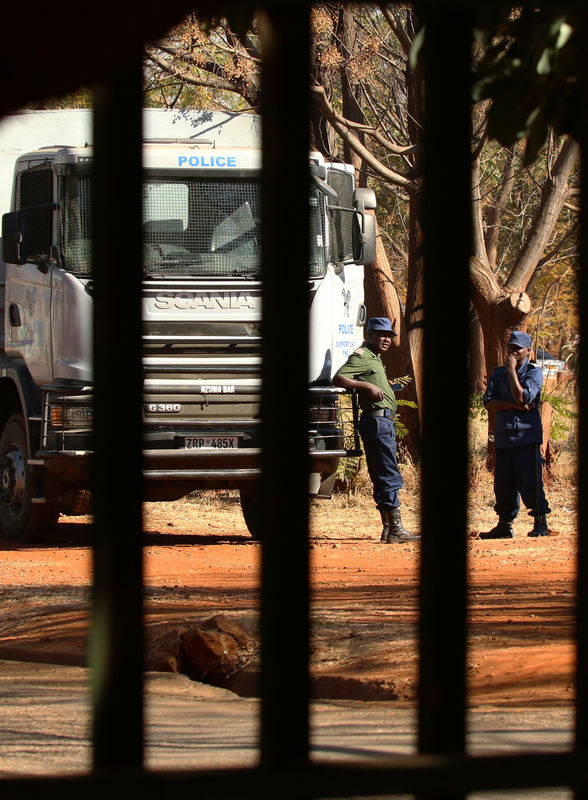HARARE (Reuters) - The court appearance of a Zimbabwean opposition politician facing up to 20 years in jail was moved hundreds of kilometers away from the capital, where supporters had gathered outside a court on Wednesday in protest.
Job Sikhala, Movement for Democratic Change (MDC) deputy chairman and lawmaker had been expected to appear before Harare magistrates court after being arrested on Tuesday on suspicion of attempting to subvert the government at a weekend rally.
His supporters gathered at the courthouse as anti-riot police watched from a distance, but he never showed up -- sparking fears he had gone missing.
Police spokesman, Assistant Commissioner Paul Nyathi, told Reuters this was not true but said the case was instead due to be heard in rural Bikita, 410 km south of the capital.
"He is on the way to Bikita to appear before a magistrate court because that is where he committed the offense. If he does not appear today he will be in court tomorrow," Nyathi said.
In a video circulating on social media, Sikhala appears to tell supporters at a rally at the weekend: "We are going to take the fight to the doorsteps of (President) Emmerson Mnangagwa, we are going to overthrow him before 2023, that is not a joke."
Reuters could not verify the authenticity of the video.
His lawyer Obey Shava said Sikhala denied the charges against him, and said moving the case to Bikita did not make sense because the National Prosecution Authority had agreed to have the trial in Harare.
One of the protesters, James Makondo, who came to the Harare court in a lorry with more than a dozen MDC supporters, told Reuters: "This is criminal. They want to take Wiwa (Sikhala's nickname) to Bikita so that his supporters can not attend the court.
"This will not work because the MDC has supporters throughout the country."
More than a dozen government opponents have faced similar subversion charges, with critics saying this shows the government is muzzling the opposition by reverting to harsh security laws from the era of Robert Mugabe, who was removed in a 2017 army coup.
Mugabe ruled the country for 37 years before being ousted. But Mnangagwa's promise to break with his predecessor's past policies and tactics and usher economic prosperity is yet to be realized.
Zimbabwe remains a deeply polarized country, with the MDC refusing to recognize Mnangagwa's victory during last year's presidential vote, that was expected to draw a line on the country's history of contested election outcome.
The MDC, which also snubbed an invitation to political dialogue with Mnangagwa in February, routinely says it will use all constitutional means to remove the president, without giving more details. [nL5N2016D7]

The southern African nation of 15 million people was hit by a drought that wilted crops and gripped by widespread economic hardship seen in shortages of foreign exchange, fuel, medicines, bread and 17-hour daily power cuts that have roiled businesses.